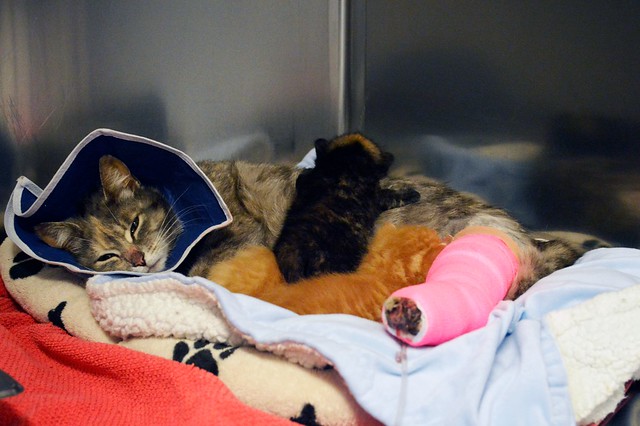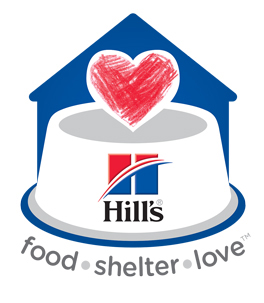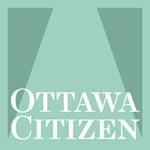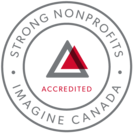|
Advocating for animals during COVID-19... read more |
|||
| If you do not see the full page with images, please click here. | |||
|
Protection for Imported Puppies |
|||
|
Since last summer's shipment of 500 abused and dead puppies from Ukraine, the Canadian Food Inspection Agency (CFIA) — the government arm that provides oversight for animals entering Canada — has been taking small steps towards improving protections for animals imported to Canada. In May, the CFIA announced several improvements for puppies under eight months old. These improvements include:
As well, these new rules specifically apply to puppies less than eight months old. This oversight means that other species and dogs that are barely adults are not afforded these same, basic protections. The CFIA's attempt to improve animal welfare for puppies imported to Canada is reassuring that animal welfare is being taken seriously, but there is so much more that needs to be done. At the very least, the CFIA has shown a willingness to change and this demonstrates that advocacy for animals coming to Canada is having an effect. Continue advocating for the animals. You are making a difference. |
|||
|
We All Know It |
|||
|
Last month, in legislation covering both livestock and pets, the United Kingdom joined a number of other jurisdictions in recognizing that animals are sentient beings. This recognition has positive effects for animal welfare and paves the way for further protections. Sentience is commonly defined as the capacity to experience feelings and sensations, or the capability to experience suffering at physical and psychological levels. An adult pig has a comparative intelligence to a three-year-old human child. Dolphins have a complex language and can recognize themselves in the mirror, proving self-awareness. Elephants have intricate social groups, display empathy and grief, and have an outstanding memory. Yet in Canada, there are powerful interests vested in not recognizing sentience in non-human species. After all, such recognition would undermine the interests of agriculture, research, entertainment and other industries. The United Kingdom has joined the rallying call for animal sentience and Canada would do well to follow suit. |
|||
|
Victims of Ontario's Lax Approach to Zoos and Exotic Animals |
|||
|
|
|||
On May 8, a kangaroo named Willow died after escaping from Papanack Park Zoo. The zoo, located east of Ottawa, is notorious for longstanding allegations of animal cruelty and abuse. Witnesses reported seeing Willow cross the road while already suffering from serious injuries. Passing motorists attempted to help Willow by capturing her with a coat while waiting for a veterinarian to arrive. It is unclear whether Willow was hit by a car, or was injured by other means. Willow's death is another sad notch in Ontario's lax approach to animal welfare in zoos and the treatment of exotic animals. Only two months ago, the OHS wrote on how African Lion Safari in Cambridge, Ontario had been deemed North America's worst zoo for elephants. Near the end of May, a citizen's group in Hastings Highlands called on the provincial government to create legislation to govern ownership of exotic animals after a roadside zoo had moved into their community and began breeding lions. The roadside zoo came to Hastings Highlands after an Ontario judge ruled that the animals could not stay in the residential area of Grand Bend, Ontario. Ontario is the only province in Canada that doesn't require a license to operate a zoo, and has no regulations specific to keeping animals in zoos. Some municipalities, like Ottawa do, but the province does not. The lack of consistent oversight opens the door for exotic animals to be shuffled from town to town and for cruel businesses to continue exploitation for profit. There are two ways you can stop for-profit animal abuse. Vote with your wallet by not visiting these zoos and contact your MPP and Solicitor General Sylvia Jones and let them know that Ontario needs stronger protections for animals in zoos and exotic animals as a whole. |
|||
|
Buddy & Belle: Lucky | |||
|
Can you imagine being lost, alone and fending for yourself with no one to care for you? Now picture having three precious kittens to look after and having a broken leg. It may be hard to imagine surviving that way... but that's what this two-year-old cat went through before being found. This brave momma cat, who OHS staff have named Lucky, was found nursing her three kittens in the woods. |
|||
|
You Can Save Animals Like Sparrow | |||
|
| |||
|
Did you know PAW monthly donors help animals, every day of the year? They were there when Sparrow needed help the most. She was found in the countryside, lost and alone, limping on three legs. This sweet, nine-month-old tabby would not put any weight on her front left leg. Because of PAW monthly donors, she got the surgery she needed to make her second chance possible. You can be a hero to animals like Sparrow too... visit ottawahumane.ca/paw to learn more and become a hero today! |
|||
| Thank you to our sponsors: | |||
|
|
|||
| Ottawa Humane Society 245 West Hunt Club Rd, Ottawa, ON K2E 1A6 donations@ottawahumane.ca | www.ottawahumane.ca |
|||
|
|
|||
|
The Standards Program Trustmark is a mark of Imagine Canada used under licence by the Ottawa Humane Society. The Humane Canada Accreditation Program mark is a licensed mark of Humane Canada used under license by the Ottawa Humane Society. |
|||
| Privacy Statement Manage your Email Preferences |










